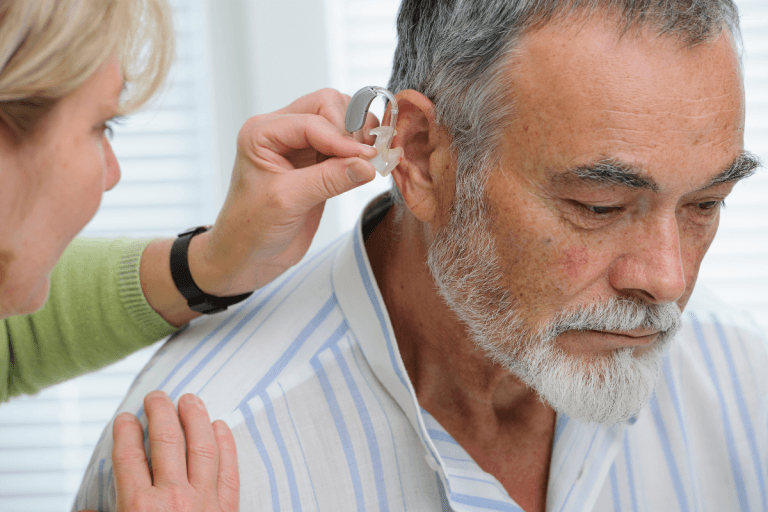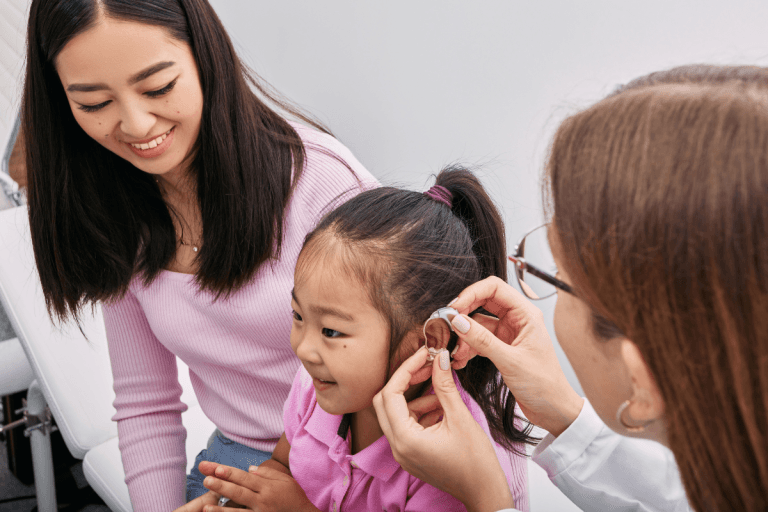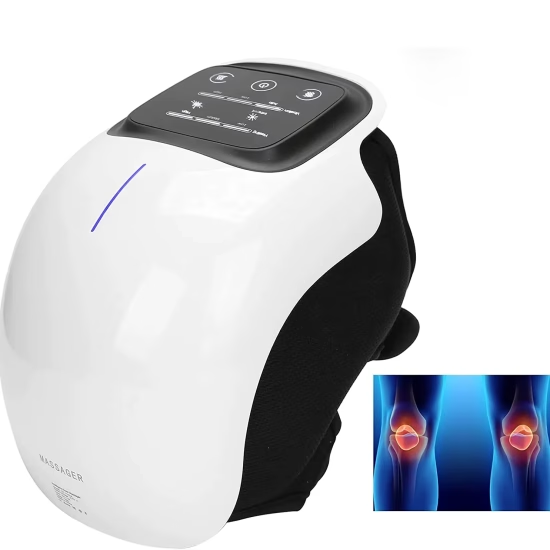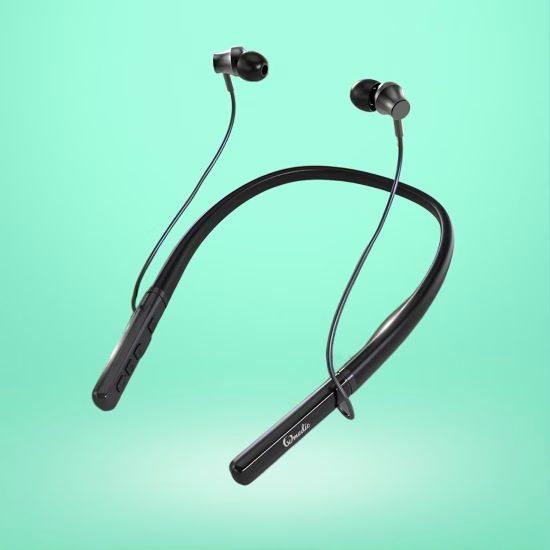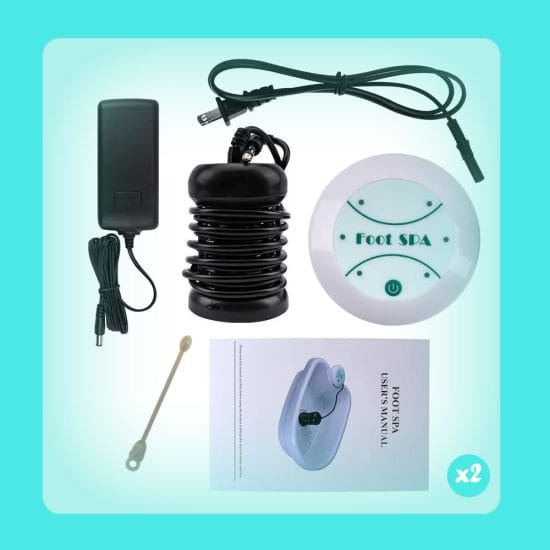Ringing, Buzzing, Hissing Sounds: Do You Need Hearing Aids?
If you’ve ever experienced ringing, buzzing, or hissing sounds in your ears, you’re not alone. These unsettling noises are more common than you might think and can be caused by a variety of factors, including hearing loss. But do these sounds mean you need hearing aids? Understanding the causes of these symptoms and what they could indicate about your hearing health is crucial to deciding the best course of action. Whether you’re hearing persistent ringing (tinnitus) or strange buzzing noises, we’ll walk you through what these sounds might mean and when it’s time to consider hearing aids.
- What’s That Noise? Understanding Ringing, Buzzing, and Hissing Sounds
- What Causes Ringing, Buzzing, or Hissing Sounds in Your Ears?
- Tinnitus: When the Sound is Coming from Within
- Hearing Loss and Its Connection to Unwanted Sounds
- When to Seek Professional Help for Ringing and Buzzing
- How Hearing Aids Can Help with Tinnitus and Hearing Loss
- Lifestyle Adjustments for Managing These Sounds
- In Summary: When Do You Need Hearing Aids?
- What’s That Noise? Understanding Ringing, Buzzing, and Hissing Sounds
If your ears are ringing, buzzing, or hissing, it’s important to understand what’s happening. These sounds—often referred to as “tinnitus”—are typically perceived when there is no external noise. They can vary in pitch, volume, and duration, making them especially frustrating. They may seem constant or come and go, and they often occur in one or both ears. In some cases, these sounds are harmless, but they can also be a sign of an underlying issue with your hearing. - What Causes Ringing, Buzzing, or Hissing Sounds in Your Ears?
Ringing or buzzing in the ears can be caused by several factors, including exposure to loud noises, ear infections, earwax buildup, or changes in pressure. These sounds can also occur as a result of age-related hearing loss, or they may be linked to a more serious condition, like Meniere’s disease or vascular issues. In many cases, these sounds are a temporary inconvenience, but if they persist, it could indicate hearing damage or a need for medical attention. - Tinnitus: When the Sound is Coming from Within
Tinnitus is the medical term for the perception of noise in the ears when there is no external sound present. It can present as ringing, buzzing, or hissing, and can vary in intensity. While tinnitus can happen to anyone, it’s more common among people with hearing loss. The brain “creates” these sounds in response to damaged hearing pathways, often to compensate for a lack of external stimuli. Tinnitus can also be caused by conditions like high blood pressure or ear infections, and can sometimes resolve on its own. However, for some, it’s a chronic condition that requires management. - Hearing Loss and Its Connection to Unwanted Sounds
Hearing loss and tinnitus often go hand-in-hand. When hearing loss occurs, the brain may struggle to process sounds correctly, and tinnitus can develop as a result. The sounds you hear could be your brain’s attempt to fill the silence. Age-related hearing loss, noise-induced hearing damage, or injury to the inner ear are some common causes. If you notice your hearing ability is deteriorating, it’s worth considering hearing aids as a solution. Hearing aids amplify external sounds and can help retrain the brain to focus on natural auditory stimuli, potentially reducing the perception of tinnitus. - When to Seek Professional Help for Ringing and Buzzing
If you experience persistent ringing, buzzing, or hissing sounds that don’t go away, it’s time to seek professional help. An audiologist or ENT specialist can evaluate your hearing and determine the underlying cause of the sounds. Early intervention is key to preserving your hearing and addressing conditions like tinnitus before they worsen. - How Hearing Aids Can Help with Tinnitus and Hearing Loss
For individuals with tinnitus and hearing loss, hearing aids may provide a double benefit. Not only do hearing aids improve your ability to hear external sounds, but they can also help reduce the perception of tinnitus. Some modern hearing aids come equipped with sound therapy programs, which provide soothing background noise to help mask tinnitus. These devices can be a game-changer in managing both hearing loss and the annoying sounds caused by tinnitus. - Lifestyle Adjustments for Managing These Sounds
While hearing aids can be an effective solution, there are also lifestyle changes you can make to help manage tinnitus and hearing loss. Avoiding loud environments, wearing ear protection, and reducing stress can all make a difference. Staying active and engaged with hobbies or social activities can also help take your focus off the noise. Additionally, practicing relaxation techniques, such as deep breathing or meditation, may help calm the brain and reduce the intensity of tinnitus. - In Summary: When Do You Need Hearing Aids?
If you’ve been hearing persistent ringing, buzzing, or hissing sounds, and you’ve noticed a decline in your hearing ability, it might be time to consider hearing aids. These sounds could be a sign of tinnitus or age-related hearing loss, both of which can benefit from the use of hearing aids. Hearing aids not only improve your ability to hear external sounds but may also help alleviate the perception of tinnitus. Always consult with a professional to determine the best course of action for your specific situation.
Disclaimer: This article is intended for informational purposes only and should not be considered a substitute for professional medical advice. If you are experiencing persistent ringing or buzzing in your ears, or if you suspect hearing loss, please consult a healthcare provider or audiologist for a proper diagnosis and treatment plan.
References:
- American Tinnitus Association. “What is Tinnitus?”
- Mayo Clinic. “Tinnitus.”
- National Institute on Deafness and Other Communication Disorders (NIDCD). “Tinnitus.”




